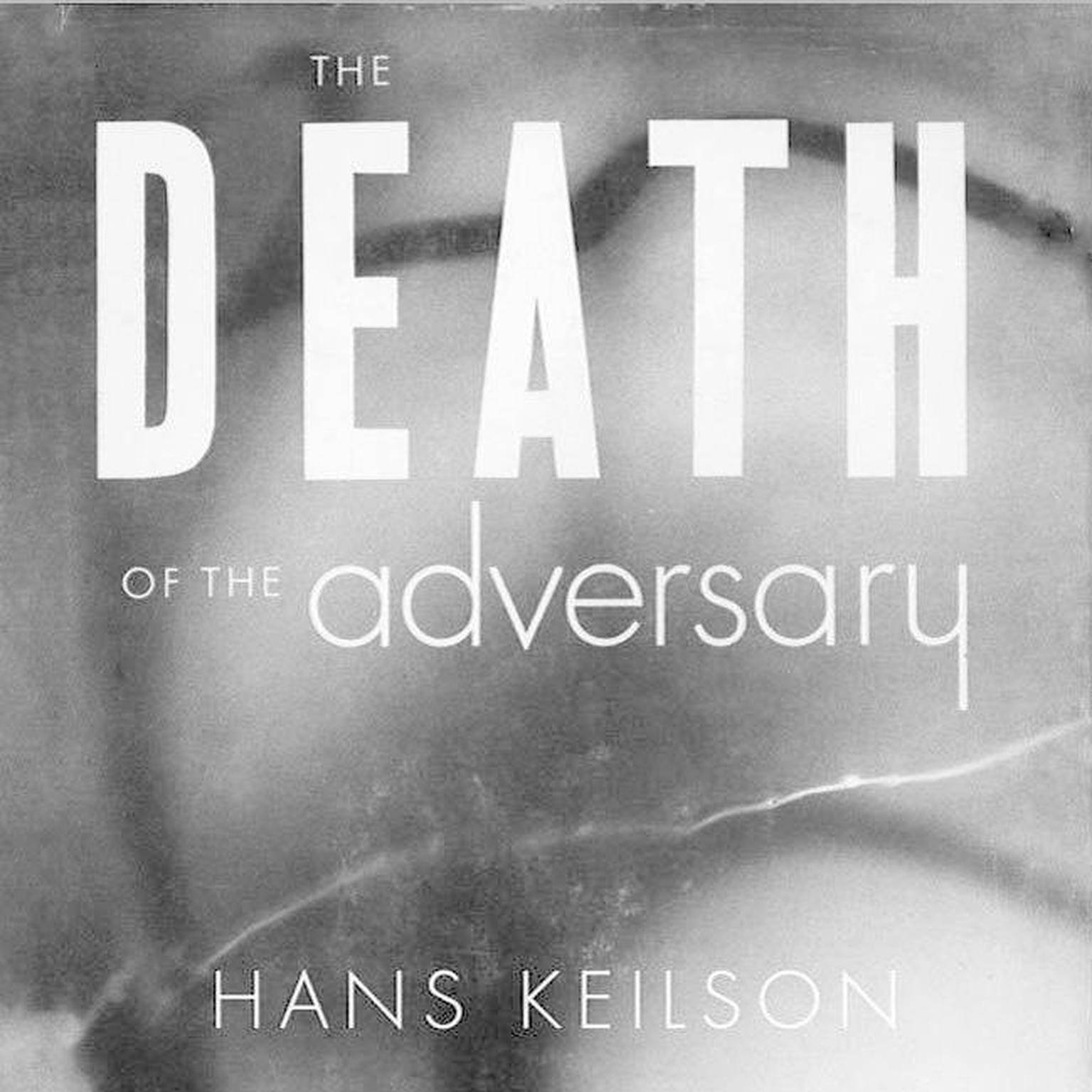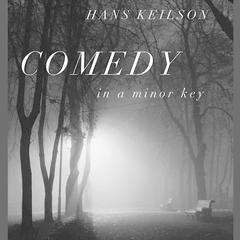 Play Audiobook Sample
Play Audiobook Sample
The Death of the Adversary: A Novel Audiobook
 Play Audiobook Sample
Play Audiobook Sample
Quick Stats About this Audiobook
Total Audiobook Chapters:
Longest Chapter Length:
Shortest Chapter Length:
Average Chapter Length:
Audiobooks by this Author:
Publisher Description
Written while Hans Keilson was in hiding during World War II, The Death of the Adversary is the self-portrait of a young man helplessly fascinated by an unnamed "adversary" whom he watches rise to power in 1930s Germany. It is a tale of horror, not only in its evocation of Hitler's gathering menace but also in its hero's desperate attempt to discover logic where none exists. A psychological fable as wry and haunting as Badenheim 1939, The Death of the Adversary is a lost classic of modern fiction.
Download and start listening now!
"A Kafkaesque tale of the rise of Hitler written by a Dutchman in hiding from the Nazis during the war, this book grows on one as it builds to its climax. It raises puzzling and provocative questions about the nature of human reluctance to stand up to evil, which has to be one of the great mysteries of 20th century Europe, and the theory that one needs an enemy to be whole and to live is troubling, to say the least. I finished it wanting to go back to the beginning and start over again, but instead I will first go read "Badenheim 1939", which addresses the same subject matter from a different perspective, that of Jews who gathered at a summer resort in 1939, oblivious to the horrific storm that was gathering back home. I don't believe "Death of the Adversary" was published in English until 2008-2009; had it been around longer, it might have already achieved the acclaim of Weisel's "Night"."
— Tom (4 out of 5 stars)
Quotes
-
“For busy, harried or distractible readers who have the time and energy only to skim the opening paragraph of a review, I'll say this as quickly and clearly as possible: The Death of the Adversary and Comedy in a Minor Key are masterpieces, and Hans Keilson is a genius . . . Although the novels are quite different, both are set in Nazi-occupied Europe and display their author's eye for perfectly illustrative yet wholly unexpected incident and detail, as well as his talent for storytelling and his extraordinarily subtle and penetrating understanding of human nature. But perhaps the most distinctive aspect they share is the formal daring of the relationship between subject matter and tone. Rarely has a finer, more closely focused lens been used to study such a broad and brutal panorama, mimetically conveying a failure to come to grips with reality by refusing to call that reality by its proper name . . . Rarely have such harrowing narratives been related with such wry, off-kilter humor, and in so quiet a whisper. Read these books and join me in adding him to the list, which each of us must compose on our own, of the world's very greatest writers.
— Francine Prose, The New York Times Book Review -
A welcome reissue of a classic . . . This psychologically subtle and acute account of denial in the face of Hitler's rise to power received strong acclaim before disappearing from print. With the celebration last year of the 100th birthday of Keilson . . . the novel has lost none of its insidious power . . . The narrative recalls the existential depth of Camus and the fabulist absurdity of Kafka or Beckett.
— Kirkus Reviews (starred review) -
The power of the unsaid haunts this devastating novel . . . A profoundly affecting exploration of the inextricable nature of love and hate, friend and enemy, Keilson's work . . . is as stimulating today as it was half a century ago.
— Publishers Weekly -
Since Adolf Hitler, an outpouring of writing has tried to explain the violence that human beings do to one another . . . Perhaps the profoundest explanation to date comes from the pen of a Jewish writer driven from Germany in 1936 and now living in Holland. Hans Keilson's novel subtly and eloquently probes the ambivalent relation of victim with aggressor . . . Keilson traces the growth of hatred in his leading character as other writers trace love or self-knowledge.
— Time, Best Books of 1962
The Death of the Adversary Listener Reviews
-
" Over dit boek heb ik lang gedaan. Steeds weggezet en weer opgepakt. Het rare is dat zijn schrijfstijl me irriteert, maar dat het verhaal dat hij verteld, en de manier waarop hij het verhaal verteld, maar in mijn hoofd blijven terugkomen. Ik weet nog steeds niet wat ik er precies mee aanmoet. "
— Nico-jan, 2/8/2014 -
" Zie recensie in De Morgen 1-12-2010. "
— Frank, 1/23/2014 -
" This is a fairly amazing book. Hans Keilson wrote this book during WWII as he fled Germany for the Netherlands about the emotions, the inner turmoil, of being a member of an un-named group who is the subject of the exploitative ire of "the adversary". Of course, he's writing about the Jews, about Hitler, but the quiet contemplation of the horror, the building of events, is incredibly powerful. Keilson presents the emotions that fed the events, the self-deception that allowed it happen, the evolution of hate and how it feeds on itself. Really powerful. But at the same time, he's so relentlessly analytical that you want him to let loose, to feel instead of being so persistently considered. On the other hand, the thoughtful quality makes it easier to read than it could have been. Recommended. "
— Ross, 1/16/2014 -
" Although a short book, it is not a quick read. Keilson explores the need of an adversary to sharpen one's self definition of moral standards and as a reason for one's mere existance. It is a thinly vailed view of a WW2 jew and his political and social adversary - the 3rd Reich. "
— Bonnie, 12/8/2013 -
" Keilson's story is powerful, not only because some things are never mentioned--Hitler, Nazi Youth--but because he is so good at psychological realism. And, since he lived during this time, there is an overlay of autobiographical realism at work, too. "
— Nina, 10/4/2013 -
" Strangely intriguing, sometimes boring, interesting narrative. Don't really know how to rate it. Mildly enjoyable. "
— Natalia, 7/18/2013 -
" I don't understand the great reviews this book has gotten. It's like trying to see details through the densest fog imaginable. Almost nothing happens for many pages. My friends called it impressionistic; I found it unbelievably boring. "
— Ken, 4/5/2013 -
" Hans Keilson has a beautiful prose style. This is a story about a young man's obsession with Hitler, whom he could only refer to as "the enemy" or "B." "
— Johnos, 10/19/2012 -
" Scary in an unconscious way. "
— Joanne, 4/28/2012 -
" Just couldn't connect with this book... I got it -- just never could get to the point where I trusted the narrator... A bit like reading a liar's memoir to me... I never knew what was real and what was just pure vitriol twisting the narrative... "
— Kris, 12/7/2011 -
" A Jewish man lives with a young newly-wed couple in the Netherlands in the 1930's and then dies from pneumonia, so they have to get rid of his body without the police finding out. "
— Chris, 5/11/2011 -
" A psychological examination of a Jew and the Dutch couple who hide him during the Occupation. This novel is succinct without losing it's poetry; Keilson crafts it with humor, intrigue and deep sadness. Highly recommend. "
— Staci, 5/11/2011 -
" Not as good as Death of the Adversary, but good nonetheless. "
— Sherwood, 3/6/2011 -
" This book is about a Dutch couple who hide a Jewish refugee during WWII. The story is short and spare. The psychological insights of the redeemer and the redeemed are acute. But maybe a person who is a little more introspective than can appreciate the fine pen the author uses. "
— Myles, 3/5/2011 -
" Comedy in a Minor Key is absurd, sad and sweet. Wim, Marie and Nico (the houseguest) "
— Laurel, 2/14/2011 -
" Tables are turned when a hidden Jewish refugee dies. . . "
— Jennifer, 2/6/2011 -
" Was a different perspective of the holocaust, not particularly life-changing but it gave psychological peeks into what went on in the minds of both the Jews who were hidden and the people who hid them. "
— Genevieve, 2/1/2011 -
" Novella about a couple who harbor a Jew during WWII. I just can't love short stories or novellas; just not enough time to develop the characters. I couldn't relate to any of them. "
— Leanne, 1/29/2011 -
" How amazing it is to still be finding Holocaust literature that was written in 1947, only to be recently translated. A story worth reading, dealing with the difficulty of getting a Jew who died out of a house where he was hiding in the Netherlands. "
— Kathleen, 1/25/2011
About James Clamp
James Clamp is an award-winning voice actor, earning his first AudioFile Earphones Award in 2011. Originally from London, he currently lives in New York.




